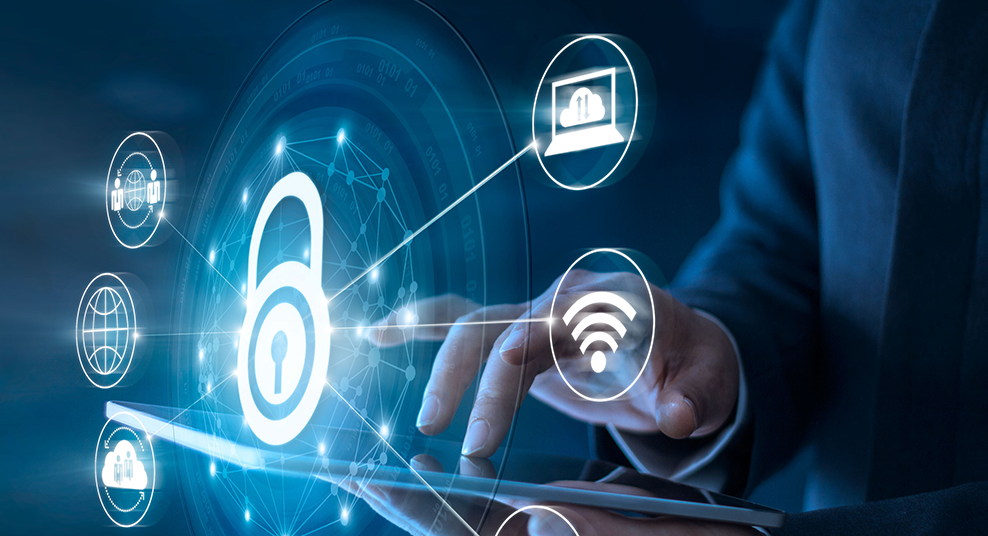
In today’s digital landscape, where businesses heavily rely on online platforms and data-driven marketing strategies, cyber security has become an indispensable concern. Marketers, both seasoned professionals and those new to the field, need to be aware of the potential threats and vulnerabilities that can compromise their efforts.
This comprehensive and easy-to-follow article aims to equip marketers with the knowledge and solutions they need to protect their valuable data, maintain customer trust, and ensure the success of their campaigns.
Identifying the risks is your first protection
As marketers, you understand the importance of protecting your intellectual property, customer data, and online reputation. However, it is of the utmost value as well to realize that cybercriminals are too constantly evolving and finding new tactics to exploit vulnerabilities – that’s just what they do. From data breaches and phishing attacks to malware infections and social engineering, the risks are manifold. A single security breach can tarnish your brand image, erode customer trust, and result in substantial financial losses. Be aware of the following:
- Data breaches: Unauthorized access to sensitive data leads to financial loss and reputational damage.
- Phishing attacks: Deceptive techniques to trick individuals into revealing confidential information
- Malware infections: Viruses, worms, or ransomware causing data loss and system disruptions
- Social engineering: Manipulative tactics to deceive individuals into divulging information or granting unauthorized access
- Insider threats: Employees or trusted individuals leaking data or compromising security measures
- Weak passwords and authentication: Insufficient password complexity and reuse, making unauthorized access easier
- Lack of security awareness and training: Human error due to a lack of knowledge of cybersecurity best practices
These risks highlight the need for marketers to prioritize cybersecurity measures to protect their data, reputation, and financial well-being.
Knowing the cyber security landscape is power
To effectively safeguard your marketing efforts, it’s crucial to understand the key components of cyber security. Familiarize yourself with concepts such as encryption, firewalls, secure coding practices, and multi-factor authentication. Stay updated on the latest industry trends, emerging threats, and compliance requirements relevant to your region or industry.
Educate yourself and your team on best practices for data privacy, incident response, and risk management. Continue reading to know what’s in your power to act upon.
Data privacy and compliance create customer trust
Develop clear privacy policies, obtain explicit consent for data collection, and regularly audit your data management practices. By prioritizing data privacy, you strengthen customer trust and foster long-term relationships. A well-executed marketing strategy incorporating cybersecurity measures generates leads through compelling content and builds trust by prioritizing data protection and privacy, as customers are more likely to engage with a brand that prioritizes their safety.
Respecting customer privacy is not only ethically imperative but also a legal requirement. With the advent of stringent data protection regulations like the General Data Protection Regulation (GDPR) and the California Consumer Privacy Act (CCPA), marketers must ensure compliance to avoid severe penalties.
Antivirus software shields your marketing infrastructure
As an integral part of your cybersecurity arsenal, antivirus software plays a crucial role in protecting your marketing infrastructure. These powerful tools scan for and eliminate malware, viruses, and other malicious software that can compromise your systems. Choose a reputable antivirus solution that offers real-time protection, regular updates, and advanced threat detection capabilities. Regularly scan your devices, including laptops, servers, and mobile devices, to identify and neutralize potential threats before they wreak havoc.
Secure networks and access control: digital borders lockdown
Securing your network infrastructure and controlling access to sensitive data are vital aspects of cyber security. Implement robust network security measures, such as firewalls, intrusion detection systems, and virtual private networks (VPNs). Restrict user access rights based on the principle of least privilege to minimize the risk of unauthorized data breaches. Regularly monitor network traffic and conduct vulnerability assessments to identify and address potential weaknesses promptly.
Globalize defense: building a cyber security culture
Cybersecurity is not a one-time endeavor; it requires an ongoing commitment from every member of your marketing team. Foster a culture of cyber security awareness by conducting regular training sessions, workshops, and simulations to educate your employees about the latest threats and prevention strategies.
Encourage strong password practices, promote the use of secure communication channels, and enforce regular software updates. By empowering your team, you create a unified front against potential cyber-attacks.
Call in the experts: External support for added protection
In the complex cybersecurity landscape, partnering with reputable cybersecurity firms can provide invaluable support in combating evolving threats. These experts specialize in conducting comprehensive risk assessments, penetration testing, and ongoing monitoring to fortify your marketing efforts against potential vulnerabilities.
By engaging with external cybersecurity experts, you gain access to their knowledge and resources, enabling you to identify and prioritize vulnerabilities within your marketing infrastructure. Their insights into emerging threats and industry best practices ensure that you stay ahead of potential risks.
With their tailored recommendations, you can proactively address vulnerabilities, protect your assets, and maintain customer trust. Collaborating with cyber security experts is the secret to achieving added protection for your marketing endeavors.
The secret weapon: Vigilant monitoring and incident response
Last but definitely not least, in the ever-evolving landscape of cyber threats, one of the most crucial aspects that marketers should be aware of is vigilant monitoring and incident response. Implementing robust monitoring systems and establishing an efficient incident response plan can be the secret weapon to effectively combat cyber attacks and minimize potential damage.
Continuous monitoring allows you to detect suspicious activities, unusual network behavior, or unauthorized access attempts in real-time. By leveraging advanced threat detection tools and employing security information and event management (SIEM) systems, you can proactively identify potential breaches before they escalate.
Additionally, having a well-defined incident response plan in place ensures that your team knows how to react swiftly and efficiently when a security incident occurs. This includes promptly isolating affected systems, preserving evidence, and initiating appropriate remediation measures.
By incorporating vigilant monitoring and incident response as a core component of your cyber security strategy, you can stay one step ahead of cybercriminals and safeguard your marketing efforts effectively.
Conclusion: Protecting your marketing kingdom
In an interconnected world, cyber security is an indispensable pillar of any successful marketing strategy. By proactively addressing potential risks, staying informed about emerging threats, and investing in robust security measures, marketers can safeguard their assets, maintain customer trust, and ensure the longevity of their campaigns.
Remember, the key to effective cyber security lies in continuous vigilance, a commitment to best practices, and a proactive mindset. Embrace the power of cyber security, and let it become the shield that protects your marketing kingdom.
Dushyant is an enthusiastic and quick learner in all fields who likes to gain experience, loves to write, and works on his creativity. He loves to explore new things and information and has the potential to spread knowledge across the world. He believes in teamwork and helping others and has a strong belief in learning from our own life experiences and exploring more through our mistakes as everyone has a story to create. His hobbies include sports, drawing, learning new things, and a deep interest in geopolitics.




